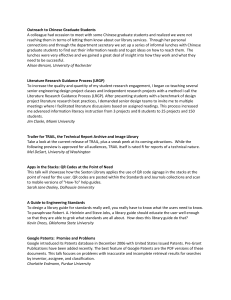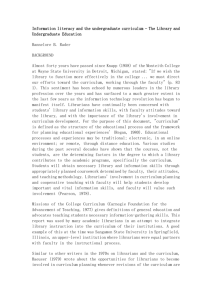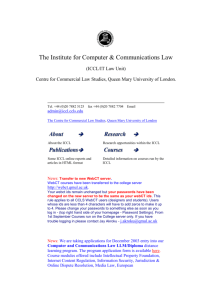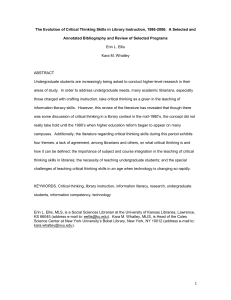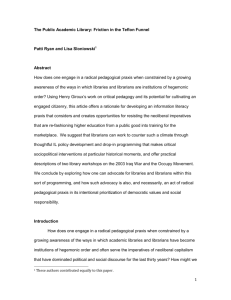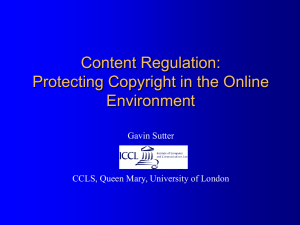Information Literacy: The Role of the Library in
advertisement
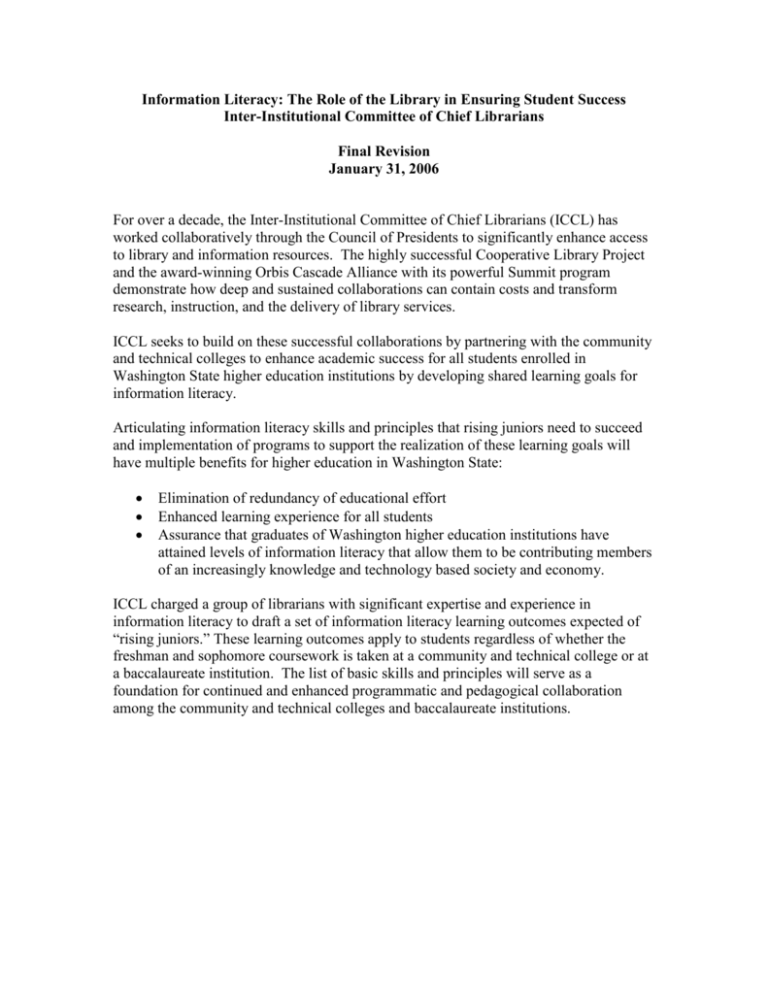
Information Literacy: The Role of the Library in Ensuring Student Success Inter-Institutional Committee of Chief Librarians Final Revision January 31, 2006 For over a decade, the Inter-Institutional Committee of Chief Librarians (ICCL) has worked collaboratively through the Council of Presidents to significantly enhance access to library and information resources. The highly successful Cooperative Library Project and the award-winning Orbis Cascade Alliance with its powerful Summit program demonstrate how deep and sustained collaborations can contain costs and transform research, instruction, and the delivery of library services. ICCL seeks to build on these successful collaborations by partnering with the community and technical colleges to enhance academic success for all students enrolled in Washington State higher education institutions by developing shared learning goals for information literacy. Articulating information literacy skills and principles that rising juniors need to succeed and implementation of programs to support the realization of these learning goals will have multiple benefits for higher education in Washington State: Elimination of redundancy of educational effort Enhanced learning experience for all students Assurance that graduates of Washington higher education institutions have attained levels of information literacy that allow them to be contributing members of an increasingly knowledge and technology based society and economy. ICCL charged a group of librarians with significant expertise and experience in information literacy to draft a set of information literacy learning outcomes expected of “rising juniors.” These learning outcomes apply to students regardless of whether the freshman and sophomore coursework is taken at a community and technical college or at a baccalaureate institution. The list of basic skills and principles will serve as a foundation for continued and enhanced programmatic and pedagogical collaboration among the community and technical colleges and baccalaureate institutions. Information Literacy Learning Outcomes for Rising Juniors at Washington State Higher Education Institutions The student should: Be able to shape a basic research question appropriate to the topic and to the audience; be able to modify or revise research questions to achieve a manageable focus. Demonstrate a basic understanding of the types of information resources available and distinguish which ones are relevant to the task; formulate effective search strategies. Begin to explore how researchers formulate questions and use specific research methods to generate evidence and support conclusions. Recognize differences between popular and scholarly information. Recognize differences between primary and secondary sources. Gain a sense of when and what type of web sources are appropriate to a given research project. Understand that there are multiple approaches to research; be flexible, creative, and resourceful in using research strategies. Practice critical assessment of sources (i.e. usefulness, authorship, currency, point of view, bias, use of evidence, etc.) Demonstrate basic skills in summarizing, analyzing, and synthesizing information from a wide variety of sources. Incorporate an understanding of their personal values and biases when making inferences and drawing conclusions about sources of information; reflect upon their own assertions. Appreciate that there are ethical issues inherent in research. Communicate results of research (via written, oral, or visual means) meeting standards of organization, evidence, coherence, and correctness. Be aware of institutional regulations concerning plagiarism and academic honesty. Know how and when to document sources using an appropriate citation format. Understand the role of library professionals and faculty in guiding them towards reliable information resources and effective research methods.






